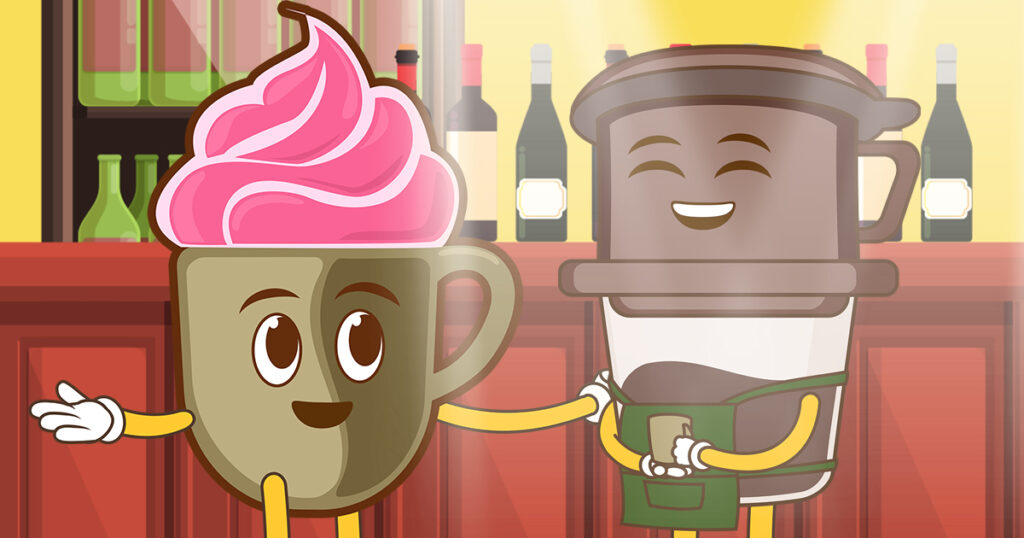Coffee is often the go-to beverage when we need a boost of energy, whether it’s to kickstart the morning or power through a long workday. However, some people experience the complete opposite effect—feeling drowsy or sluggish after drinking coffee instead of being alert and energized. This might sound strange, but there are scientific reasons why coffee makes you sleepy. While caffeine is known as a stimulant, it interacts with the body in complex ways, and in some cases, it can lead to unexpected fatigue. In this article, we’ll explore the surprising reasons why coffee makes you sleepy, what science says about it, and how you can prevent that unwanted post-coffee crash.
Adenosine Accumulation: How Coffee Makes You Sleepy
One of the main reasons coffee makes you sleepy has to do with adenosine, a chemical in the brain responsible for making you feel tired. Normally, as the day progresses, adenosine levels build up, signaling to your body that it’s time to rest. Caffeine works by blocking adenosine receptors, preventing you from feeling tired temporarily. However, caffeine doesn’t stop the production of adenosine—it only delays it. Once the caffeine wears off, the accumulated adenosine floods your system all at once, making you feel even more tired than before. This is often referred to as a “caffeine crash,” and it’s one of the most common reasons why coffee makes you sleepy rather than keeping you awake. Studies from the Sleep Foundation explain that this adenosine build-up can leave you feeling suddenly exhausted after the caffeine’s effects subside.
Caffeine Tolerance: When Coffee Makes You Sleepy Instead of Alert
If you drink coffee regularly, your body can develop a tolerance to caffeine, which may contribute to why coffee makes you sleepy. Over time, the brain responds to frequent caffeine intake by producing more adenosine receptors to counteract its effects. This means that caffeine has less impact on blocking sleepiness, making you feel more tired instead of energized. As a result, the more coffee you drink, the more you may find that coffee makes you sleepy instead of perking you up. This can lead to a cycle where you increase your coffee intake in an attempt to stay alert, but the extra adenosine receptors make it less effective, causing you to feel even more tired. According to research from the National Institutes of Health, this tolerance buildup is a key reason why some people no longer feel the energizing effects of coffee and instead experience fatigue after drinking it.
Dehydration: A Surprising Reason Coffee Makes You Sleepy
Another reason why coffee makes you sleepy is its diuretic effect, which can contribute to dehydration. Caffeine increases urine production, causing the body to lose fluids more quickly. Even mild dehydration can lead to symptoms like fatigue, headaches, and sluggishness, making coffee counterproductive when you’re trying to stay awake. If you’re not drinking enough water alongside your coffee, dehydration can sneak up on you, making you feel tired instead of alert. Dehydration also affects blood circulation and oxygen delivery to the brain, further increasing the feeling of exhaustion. According to a report from Healthline, staying hydrated is crucial to counteract this effect and maintain energy levels after drinking coffee.
Blood Sugar Spikes: How Sweetened Coffee Makes You Sleepy
If you add sugar, flavored syrups, or sweetened creamers to your coffee, your drink could be causing a rapid spike in blood sugar levels. While this can provide a temporary burst of energy, it is often followed by a crash when insulin works to bring blood sugar levels back down. This crash can leave you feeling drained, sluggish, and sleepy after drinking coffee. The more sugar your coffee contains, the more likely it is that coffee makes you sleepy instead of keeping you energized. Research has shown that diets high in sugar can lead to fatigue and decreased alertness throughout the day, making sugary coffee a hidden culprit behind unexpected drowsiness. If you frequently experience this effect, switching to black coffee or using unsweetened milk alternatives may help you avoid these energy crashes. The experts at Healthline recommend keeping sugar intake low to maintain stable energy levels throughout the day.
Sleep Disruption: When Evening Coffee Makes You Sleepy the Next Day
One of the lesser-known reasons coffee makes you sleepy is its impact on your sleep quality. While caffeine helps you stay awake in the moment, consuming it too late in the day can disrupt your natural sleep cycle. Caffeine has a half-life of about 3 to 5 hours, meaning that if you drink coffee in the afternoon or evening, a significant amount of caffeine can still be in your system by bedtime. This can lead to difficulty falling asleep or poor sleep quality, causing grogginess and fatigue the next day. If you find yourself constantly tired even after drinking coffee, it may be due to caffeine-related sleep disturbances from the previous night. The Sleep Foundation warns that consuming caffeine too late in the day can create a vicious cycle of poor sleep and increased coffee consumption, ultimately leading to more fatigue.
Individual Differences: Why Coffee Makes You Sleepy for Some People but Not Others
Not everyone reacts to caffeine the same way, and for some individuals, coffee makes you sleepy due to genetic differences in caffeine metabolism. Some people have a genetic variation that causes their bodies to process caffeine more slowly, making them more susceptible to its negative effects, including fatigue. Others may be more sensitive to the way caffeine interacts with adenosine receptors, experiencing sleepiness instead of stimulation. Additionally, people with conditions like anxiety or adrenal fatigue may find that caffeine depletes their energy levels instead of boosting them. A study from the National Institutes of Health highlights how genetic and physiological differences can determine whether coffee makes you feel awake or tired.
How to Prevent That Post-Coffee Crash
If you love coffee but find that coffee makes you sleepy, there are a few strategies to help you stay energized:
- Drink Coffee in Moderation: The FDA recommends limiting caffeine intake to 400 milligrams per day (about four 8-ounce cups of coffee). Too much caffeine can lead to tolerance, making coffee less effective. (Healthline)
- Stay Hydrated: Since coffee can dehydrate you, make sure to drink plenty of water to avoid feeling sluggish.
- Avoid Sugary Additives: Opt for unsweetened coffee or natural milk alternatives to prevent blood sugar crashes.
- Time Your Coffee Right: Avoid caffeine at least six hours before bedtime to ensure a restful night’s sleep. (Sleep Foundation)
- Listen to Your Body: If you find that coffee consistently makes you tired, it may be worth reducing your intake or switching to alternatives like tea, which has lower caffeine levels and different stimulant effects.
Final Thoughts: Why Coffee Makes You Sleepy and What You Can Do About It
Although coffee is widely recognized as an energy booster, it can have the opposite effect on some people due to adenosine buildup, caffeine tolerance, dehydration, blood sugar fluctuations, and sleep disturbances. Understanding why coffee makes you sleepy can help you adjust your habits to enjoy coffee’s benefits without the unwanted drowsiness. Whether it’s drinking more water, cutting back on sugar, or avoiding late-afternoon coffee, small changes can make a big difference in how caffeine affects your body. So the next time you reach for a cup of coffee, be mindful of how it interacts with your system—because sometimes, the thing you rely on to wake you up might just be the thing making you sleepy.

